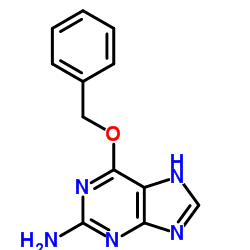MGMT inhibition restores ERα functional sensitivity to antiestrogen therapy.
George C Bobustuc, Joshua S Smith, Sreeram Maddipatla, Sheila Jeudy, Arati Limaye, Beth Isley, Maria-Lourdes M Caparas, Susan M Constantino, Nikita Shah, Cheryl H Baker, Kalkunte S Srivenugopal, Said Baidas, Santhi D Konduri
Index: Mol. Med. 18 , 913-29, (2012)
Full Text: HTML
Abstract
Antiestrogen therapy resistance remains a huge stumbling block in the treatment of breast cancer. We have found significant elevation of O(6) methylguanine DNA methyl transferase (MGMT) expression in a small sample of consecutive patients who have failed tamoxifen treatment. Here, we show that tamoxifen resistance is accompanied by upregulation of MGMT. Further we show that administration of the MGMT inhibitor, O(6)-benzylguanine (BG), at nontoxic doses, leads to restoration of a favorable estrogen receptor alpha (ERα) phosphorylation phenotype (high p-ERα Ser167/low p-ERα Ser118), which has been reported to correlate with sensitivity to endocrine therapy and improved survival. We also show BG to be a dual inhibitor of MGMT and ERα. In tamoxifen-resistant breast cancer cells, BG alone or in combination with antiestrogen (tamoxifen [TAM]/ICI 182,780 [fulvestrant, Faslodex]) therapy enhances p53 upregulated modulator of apoptosis (PUMA) expression, cytochrome C release and poly (ADP-ribose) polymerase (PARP) cleavage, all indicative of apoptosis. In addition, BG increases the expression of p21(cip1/waf1). We also show that BG, alone or in combination therapy, curtails the growth of tamoxifen-resistant breast cancer in vitro and in vivo. In tamoxifen-resistant MCF7 breast cancer xenografts, BG alone or in combination treatment causes significant delay in tumor growth. Immunohistochemistry confirms that BG increases p21(cip1/waf1) and p-ERα Ser167 expression and inhibits MGMT, ERα, p-ERα Ser118 and ki-67 expression. Collectively, our results suggest that MGMT inhibition leads to growth inhibition of tamoxifen-resistant breast cancer in vitro and in vivo and resensitizes tamoxifen-resistant breast cancer cells to antiestrogen therapy. These findings suggest that MGMT inhibition may provide a novel therapeutic strategy for overcoming antiestrogen resistance.
Related Compounds
| Structure | Name/CAS No. | Molecular Formula | Articles |
|---|---|---|---|
 |
O6-Benzylguanine
CAS:19916-73-5 |
C12H11N5O |
|
Differential expression of miR200a-3p and miR21 in grade II-...
2014-07-01 [Cancer Biol. Ther. 15(7) , 938-50, (2014)] |
|
Formation and repair of pyridyloxobutyl DNA adducts and thei...
2012-10-15 [Chem. Res. Toxicol. 25(10) , 2167-78, (2012)] |
|
Evaluation of novel imidazotetrazine analogues designed to o...
2015-01-01 [Mol. Cancer Ther. 14(1) , 111-9, (2015)] |
|
4-nitrobenzyloxycarbonyl derivatives of O(6)-benzylguanine a...
2011-11-10 [J. Med. Chem. 54(21) , 7720-8, (2011)] |
|
Phase I clinical trial of O6-benzylguanine and topical carmu...
2012-05-01 [Arch. Dermatol. 148(5) , 613-20, (2012)] |